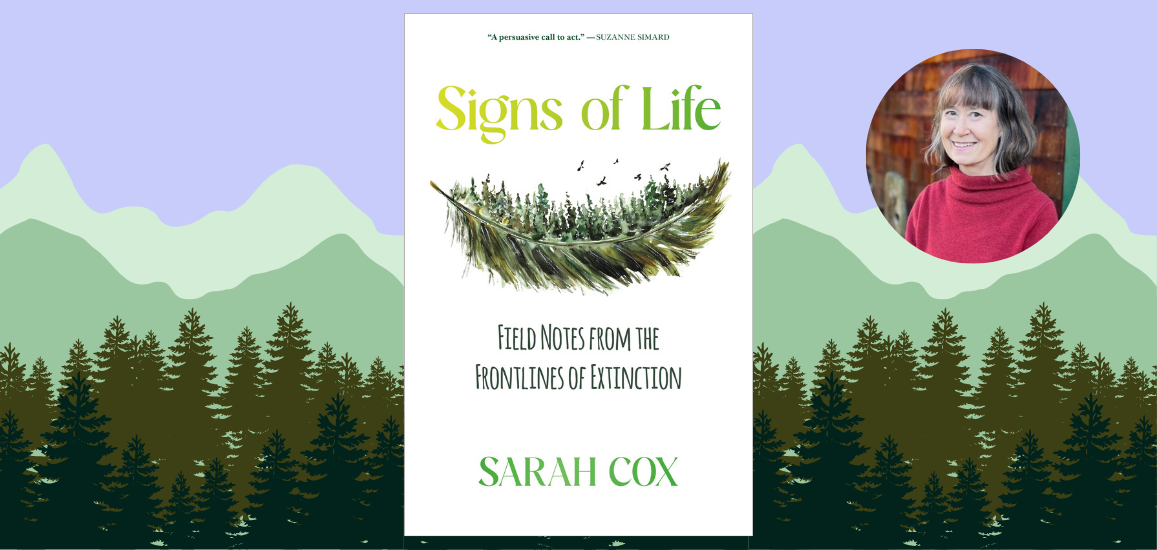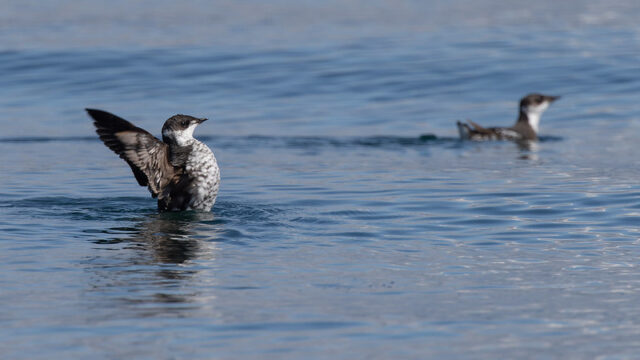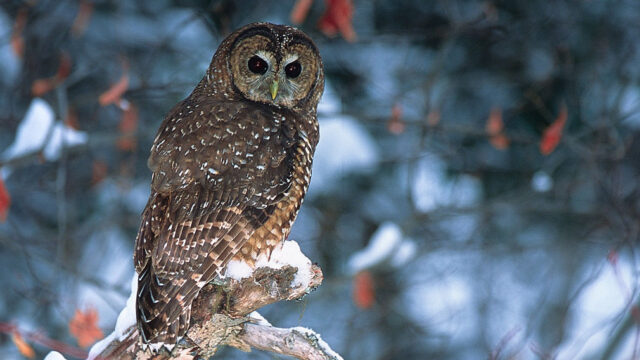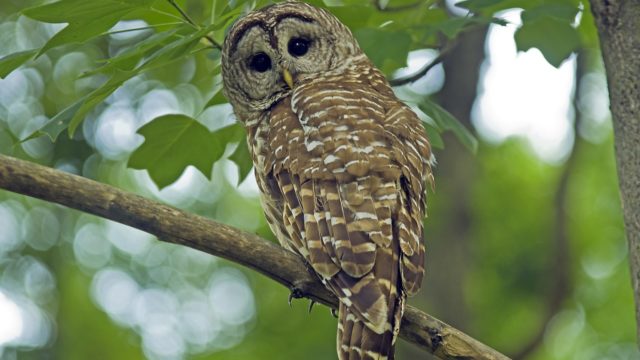In her new book, Signs of Life: Field Notes from the Frontlines of Extinction, environmental journalist Sarah Cox follows those in Canada racing to save hundreds of species before it’s too late.
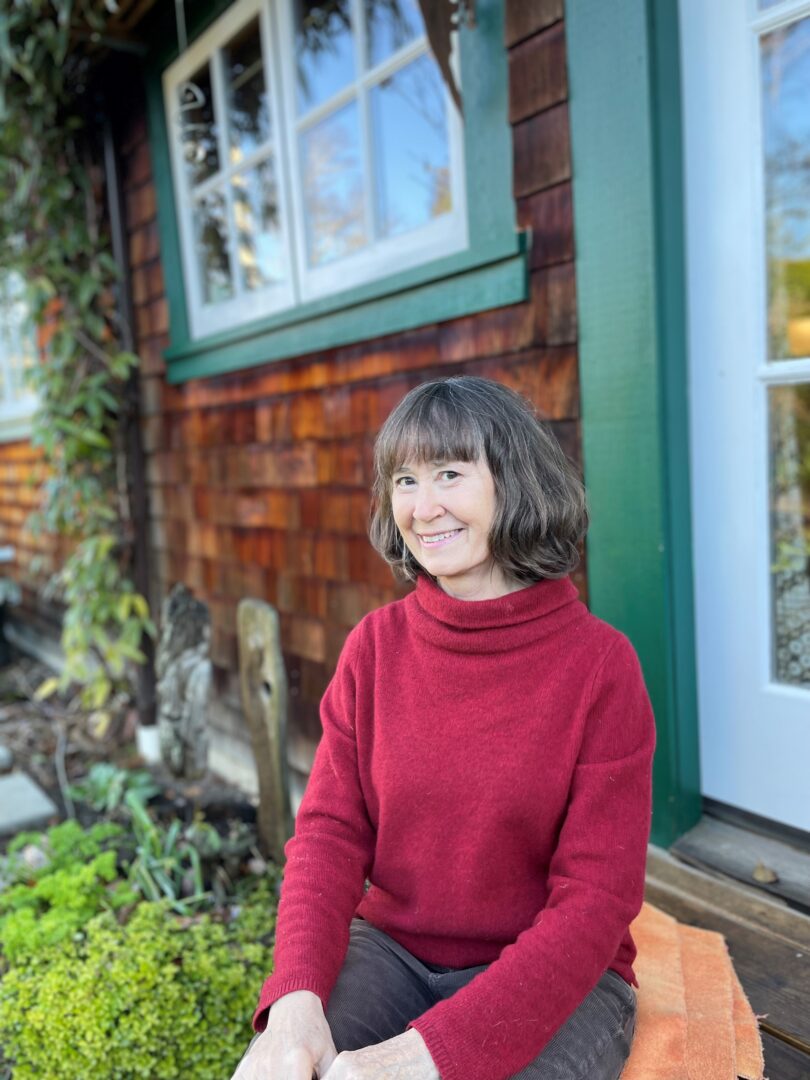
Sarah Cox is an award-winning author and journalist based in Victoria, British Columbia.
Her previous book Breaching the Peace: The Site C Dam and a Valley’s Stand Against Big Hydro won a B.C. Book Prize and was a finalist for the Shaughnessy Cohen Prize for Political Writing (Writers’ Trust of Canada).
Sarah is an investigative reporter for The Narwhal, where she writes about environmental issues.
(Photo by Kim Parker)
How did the idea for this book come about?
I started thinking about the increasingly elaborate and expensive things that we were doing to try and pull a species back from the brink of extinction. Hatching Spotted Owls in a lab…flying caribou in helicopters…shooting one species to ‘save’ another. I kept thinking, surely there’s a better way to do this, a better use of public resources.
Although sometimes it’s absolutely necessary to engage in those very expensive, intensive efforts, they need to be coupled with other measures. And so, I set about looking at what we were doing right and what we were doing wrong. That took me on a journey literally across Canada, from the Canadian military to lawyers with Ecojustice, to ordinary people doing things in their own neighbourhood.
Could you talk about working with Ecojustice for your research?
I reached out to [Ecojustice lawyer] Sean Nixon because I knew he had been at the forefront of many legal challenges regarding species at risk in Canada. And he has perhaps been involved in more legal cases than any other lawyer right across the country. He’s intimately familiar with the Species At Risk Act (SARA).
We have a federal law in place [SARA], but the provinces have not stepped up and wildlife largely falls under provincial jurisdiction. And in order to get the federal government to follow its own law, in order to get provinces to follow their own laws — and I don’t include B.C. in this because B.C. doesn’t yet have a standalone law for endangered species — they need to be taken to court. It shouldn’t be that way.
How did writing this book change how you see things?
I think, just in the people that I met right across the country. From the person with the Canadian military who was driving the car that I was in going to see the Burrowing Owls to the ranchers in southern Saskatchewan who are starting to graze their cattle differently to protect the native Prairie ecosystem, to the people in Nova Scotia who are documenting old-growth lichens in forests and, essentially, doing the role that the government should be doing [which is] looking after endangered species.
The book is called Signs of Life. Did you want to focus on hope as opposed to despair?
Yes. And I have to say that that title came from my publisher Goose Lane. The title that I floated, which was an idea from a friend of mine, was ‘The Dead Species Society’ which did not fly. [Laughs]
If you weren’t an environmental journalist, what would you be?
Wow, what would I be? Nobody has ever asked me that question before…something that takes me outside. I love spending time in nature. I love kayaking and backpacking and hiking and long-distance walking.
I’ve recently taken up bird-watching. I am finally learning some of my birds; I love that I’m so present in the moment and they’re such a reminder of both the fragility of life and how beautiful the planet is.
Is there a single takeaway you’d like readers to leave with?
I think it’s that everybody can make a difference in very small and very large ways. The groundwork for that change has already been laid and we just need to ramp that up. As the 2019 United Nations report about the state of biodiversity in the world said, they basically warned that up to 1,000,000 species are at risk of extinction, many within decades. Canada is no exception. They they also said there’s still time to turn things around.
We need to get cracking. And so, I think my wish is that we actually get cracking on this, because the trajectory that we’re on is not a good one, but there’s still time to get on to a different path.
Signs of Life: Field Notes from the Frontlines of Extinction, Goose Lane Editions, is available now at your local independent bookstore.

